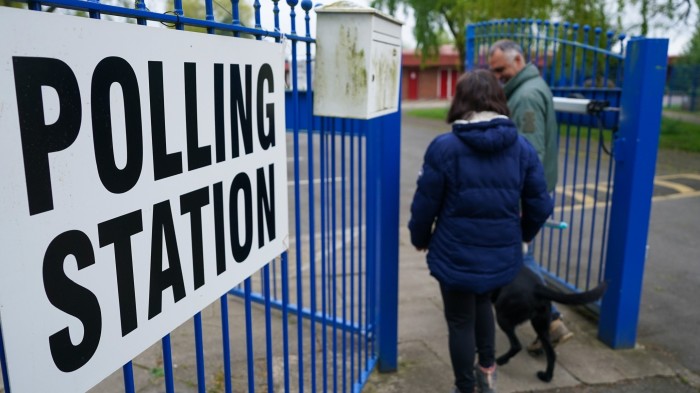Unlock the Editor’s Digest for free
Roula Khalaf, Editor of the FT, selects her favourite stories in this weekly newsletter.
More than half of the English county councils scheduled to hold elections in May look set to request a postponement in response to the government’s sweeping plans for devolution.
Thirteen of the 21 English councils due to hold polls, alongside the Isle of Wight, are weighing up a delay as they consider ministers’ proposals for restructuring local authorities, according to local government officials.
The request comes ahead of the first local elections to take place under the new Labour government, expected in spring, in which Reform and the Conservatives hope to capitalise on the administration’s waning popularity. Labour has been accused by the Tories of not wanting to “face the electorate”.
Critics have also argued the local government overhaul will dilute local democracy without saving any money.
Ministers say they are aimed at furthering English devolution, however, by creating simpler, more efficient footprints to which power can be handed from Westminster.
Angela Rayner, secretary of state for housing communities and local government, has given county councils until Friday to decide whether to postpone the polls and join a fast-track devolution process that would see the phased creation of new authorities in 2027 and 2028.
The government unveiled plans last month for the most wide-ranging overhaul of local government in decades. Under the reforms areas of the country that are covered by two tiers of local authorities will be asked to present merger proposals.
The two tiers include county councils, which run services such as social care, and smaller district councils, which are in charge of neighbourhood services including planning and bin collections.
The changes are likely to mean the scrapping of all district councils to create larger unitary authorities of around 500,000 inhabitants. These could then collaborate to create combined “strategic” authorities covering larger areas able to exercise devolved powers, overseen by a mayor.
The proposed 500,000 population figure has triggered a backlash from critics who argue an increase to the size of council footprints would dilute local democracy.
On Tuesday, Rayner told MPs on parliament’s housing and local government select committee that while the figure was flexible, smaller proposals for councils of 300,000 or 350,000 inhabitants would not be deemed acceptable.
Council officials said 13 counties and the Isle of Wight, broadly in favour of the reforms because they would unlock devolution deals granting their areas greater autonomy, were considering reorganisation in the near future.
Those counties joining the government’s “priority” devolution programme would hold elections to “shadow unitary councils” at a later date, according to a letter sent to them by Jim McMahon, minister for local government.
“For any area in which elections are postponed, we will work with areas to move to elections to new ‘shadow’ unitary councils as soon as possible as is the usual arrangement in the process of local government reorganisation,” McMahon wrote.
The discussions are taking place at a county level with many lower tier district councils strongly opposed to both the postponement and the reforms.
The District Councils’ Network, representing 169 district and unitary councils across England, said it expected at least 10 county councils to cancel elections this year depriving “many millions of voters . . . of their local democracy”.
The postponement would mean the electorate would be “deprived of any democratic opportunity to give their verdict” on the restructuring plans, the DCN argued.
“The cancellation of the local elections comes after the government’s general election manifesto neglected to mention that it sought to take power away from communities by replacing district councils with mega councils,” said Sam Chapman-Allen, DCN chair.




